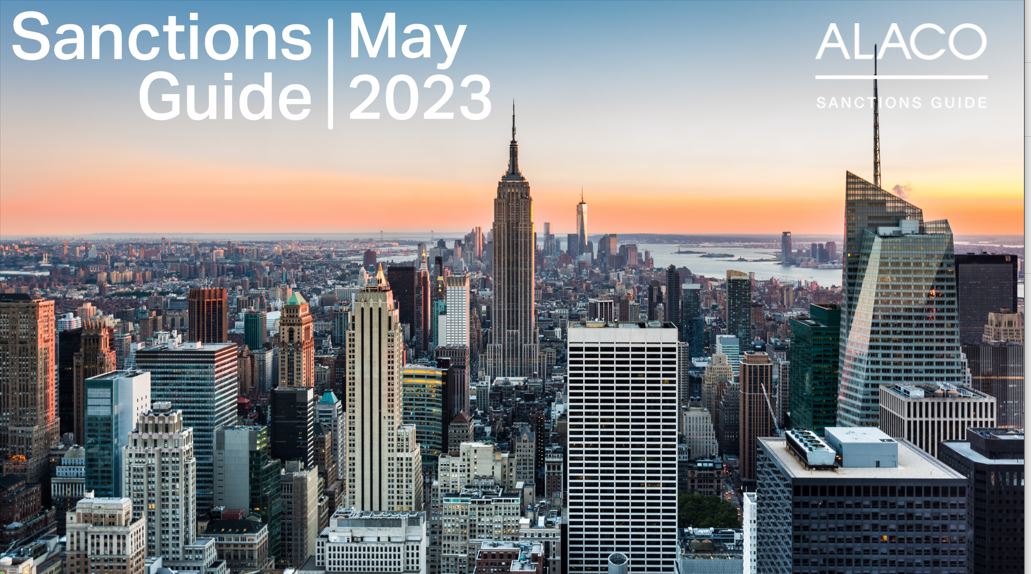This month has seen a continued focus by the US and UK on Russia, as both countries added suspected proxies of Alisher Usmanov and Roman Abramovich to their respective Russian sanctions lists. The EU added the Wagner Group to its Russian list and established a new program targeting those responsible for threatening the stability of Moldova and its government.
Elsewhere, both the UK and EU introduced additional measures designed to target those in Iran responsible for ongoing human rights violations, while the DOJ announced a forfeiture claim against an IRGC weapons shipment intercepted by the US Navy in December 2022. In the enforcement space more broadly, the most significant development was British American Tobacco agreeing to pay over $500 million to settle liabilities arising from historical allegations of North Korea sanctions violations relating to its Singaporean operations.
US Designations
- On 12th April OFAC designated over 120 people and entities across more than 20 jurisdictions pursuant to its Russia sanctions regime. The list included several people and entities believed to have helped sanctioned oligarch Alisher Usmanov to evade the sanctions against him, including his stepson, Natan Adadievich Viner and his Moscow consulting firm OOO GKR UK; his sister, Saodat Burxanovna Narzieva, and Usmanov’s so-called “Cypriot network” of proxies.
- Illicit marketplace website Genesis Market was designated by OFAC on 5th April under its Cyber Program for its part in the theft and sale of device credentials and related sensitive information. Genesis is believed to be based in Russia and has a clearnet and a darknet presence. As of 1st February 2023, there were approximately 460,000 packages listed for sale on Genesis, each of which represents a single compromised victim computer or device.
- OFAC on 4th April designated brothers and Lebanese nationals Raymondand Teddy Zina Rahme, who are alleged to have engaged in corrupt practices, including the use of companies under their control to win multiple Lebanese government contracts through an opaque public tendering process. Also designed were UAE-incorporated ZR Energy DMCC and Lebanese ZR Group Holding SAL and ZR Logistics SAL, all of which are understood to be owned by the Rahme brothers.
- 0n 5th April OFAC listed former President of the Haitian Chamber of Deputies Gary Bodeaupursuant to its human rights program. Bodeau is said to have had engaged in extensive corruption in Haiti, including several corrupt schemes wherein he attempted to influence the outcome of Haitian political appointments through bribery.
- On 30th March Slovakian national Ashot Mkrtychevwas designated under the North Korea program for attempting to facilitate arms deals between Russia and North Korea. It is alleged that between the end of 2022 and early 2023, Mkrtychev worked with North Korean officials to obtain weapons and munitions for Russia, in exchange for materials ranging from commercial aircraft, raw materials and commodities to be sent to North Korea.
- On 18th April 2023, OFAC designated 20 peopleand 32 entities who are believed to be part of an international money laundering and sanctions evasion network which facilitated the payment, shipment and delivery of cash, diamonds, precious gems, art and luxury goods for the benefit of alleged Hezbollah financier Nazem Said Ahmad. Ahmad was designated by the US in December 2019. The targeted people and entities are understood to be located in Lebanon, the UAE, South Africa, Angola, Côte d’Ivoire, the DRC, Belgium, the UK and Hong Kong.
- On 19th April OFAC designated Nicaraguan judges Nadia Camila Tardencilla Rodriguez, of the Second District Trial Court of Managua, Ernesto Leonel Rodriguez Mejia, of the Managua Appeals Court, and Octavio Ernesto Rothschuh Andino, of the First Criminal Appeal Court of Managua, pursuant to OFAC’s Nicaragua program. Those listed are said to have played a role in stripping over 300 Nicaraguans of their citizenship, leaving many stateless.
EU Developments
- The EU has adopted a new sanctions program in response to alleged threats to the stability of Moldova and its government. The new regime provides for travel bans and asset freezes on those responsible for, supporting or implementing actions or policies which undermine or threaten the sovereignty and independence of Moldova, or democracy, the rule of law, stability or security.
- The EU took the first concrete steps to creating a bespoke corruption sanctions program as the High Representative for Foreign Affairs and Security Policy this month proposed a Council Decision and, jointly with the European Commission, a proposal for a Council Regulation to establish such a regime. The Joint Communication by the High Representative and the Commission says the regime (if adopted by the Council) will provide for sanctions where acts of corruption seriously affect or risk affecting the fundamental interests of the EU and the objectives of the Common Foreign and Security Policy.
- On 15th April the EU added the Wagner Group and RIA FAN, part of the Patriot Media Group, to its Russia sanctions list. The Wagner Group was already listed on the EU’s human rights sanctions list, having been designated in December 2021.
- Pursuant to its Iran sanctions regime, the EU has designated eight people and one entity alleged to be responsible for serious human rights violations in Iran. Those listed included Iranian mobile service provider Ariantel, Members of the Iranian Parliament and its Culture Commission, Bijan Nobaveh Vatan and Ali Yazdikhah, and five executives and members of the IRGC Cooperative Foundation.
- The EU further bolstered its Syrian program this month, adding 25 people and eight entities, many of whom are alleged to be responsible for the production and trafficking of narcotics, notably Captagon. The Syrian regime is believed to be heavily involved in the amphetamine trade.
UK developments
- On 12th April the UK added ten people and four entities said to be involved in assisting sanctioned oligarchs including Roman Abramovich and Alisher Usmanov, in evading sanctions and hiding their wealth. The entities included Curzon Square Limited, Hanley Limited and USM Holdings Limited, which are alleged to be linked to Usmanov; and Meritservus HC Limited, which is alleged to be linked to Abramovich. On 21st April OFSI further designated five people alleged to be connected to the poisoning and arrest of Russian opposition politician and journalist, and British national, Vladimir Kara-Murza. On Monday Kara-Murza was sentenced by a Russian court to 25 years in prison for charges including treason and spreading ‘knowingly false information’ about the Russian armed forces.
- On 18th April OFSI added Nazem Ahmad, who is suspected of financing Hezbollah, to its Counter-Terrorism sanctions list. Ahmad is alleged to have an extensive art collection in the UK; he reportedly conducts business with multiple UK-based artists, art galleries and auction houses.
- The UK government published its Economic Crime Plan for 2023-2026 this month. As part of the Plan, the government has committed to combatting kleptocracy and sanctions evasion, including by expanding the capacity of the NCA’s Combatting Kleptocracy Cell to target “corrupt elites” through assets hidden in the UK and to support cross-government work on criminal breaches of sanctions, publishing an assessment of sectoral threats and vulnerabilities relating to financial sanctions by Q4 2024; and increasing engagement between the private and public sector, and reviewing and expanding on OFSI’s enforcement guidance and licencing framework by Q4 2023.
- On 24th April the UK took further action to designate members of the Iranian security forces said to be responsible for the violent suppression of protests in Iran. The UK added four IRGC commanders to its Iran (human rights) sanctions list, stating in the accompanying press release that, under their leadership, IRGC forces have opened fire on unarmed protestors resulting in numerous deaths, including of children, and have arbitrarily detained and tortured protestors.
Enforcement
- On 25th April, British American Tobacco PLC agreed to pay over $500 million to settle potential civil liability arising from apparent violations of US sanctions on North Korea and WMD proliferators. According to OFAC, in 2001 a Singapore-registered BAT subsidiary established a joint venture in North Korea with a North Korean company for the purpose of manufacturing and distributing its cigarettes. In 2007, BAT sold its stake in the JV to a third-party Singaporean company for €1. After the divestment, BAT is accused of having continued to exercise effective ownership and control over the joint venture, while its Singapore-registered subsidiary continued to supply goods to and receive payments from the company.
- The Zurich District Court was reported this month to have found four former executives at Gazprombank’s Zurich branch guilty of failing to perform sufficient due diligence in connection with the opening and maintenance of bank accounts for Russian cellist Sergei Roldugin, who is also the godfather of President Putin’s daughter. The Court reportedly said that it was beyond doubt that Roldugin was not the true owner of the millions of Swiss francs held in the accounts between 2014 and 2016.
- The US DOJ this month announced the filing of a forfeiture complaint against a weapons shipment that the US Navy seized in transit from the IRGC to Yemen. In December 2022, the Marwan 1 was intercepted as part of a US investigation into an Iranian weapon smuggling network and was found to be carrying over one million rounds of ammunition, thousands of proximity fuses for rocket-propelled grenades and thousands of pounds of propellant for rocket-propelled grenades.
- On 6th April Microsoft agreed to pay $3 million to settle its potential civil liability relating to the export of services or software from the US to comprehensively sanctioned jurisdictions and listed persons. The allegation is that, between July 2012 and April 2019, the Microsoft violated US sanctions when it sold software licences, activated software licences and / or provided related services from servers and systems located in the US and Ireland to listed persons and other end users located in Cuba, Iran, Syria, Russia and Crimea. The total value of these sales and related services was $12 million.


